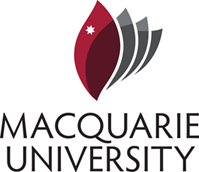Team:Macquarie Australia
From 2011.igem.org
m |
|||
| Line 1: | Line 1: | ||
| - | |||
{|align="justify" | {|align="justify" | ||
|You can write a background of your team here. Give us a background of your team, the members, etc. Or tell us more about something of your choosing. | |You can write a background of your team here. Give us a background of your team, the members, etc. Or tell us more about something of your choosing. | ||
| Line 7: | Line 6: | ||
'''Introducing a functional light switch into E. coli. ''' | '''Introducing a functional light switch into E. coli. ''' | ||
<br> | <br> | ||
| - | The objective in this project is to build and characterise a biological light switch in E.coli. This will involve construction of bacteriophytochrome biobrick parts and heme-oxygenase biobrick parts. In 2010 the Macquarie Team cloned bacteriophytochrome from two sources | + | The objective in this project is to build and characterise a biological light switch in E.coli. This will involve construction of bacteriophytochrome biobrick parts and heme-oxygenase biobrick parts. In 2010 the Macquarie Team cloned bacteriophytochrome from two sources. They showed that when one was expressed that it was functionally assembled when incubated with biliverdin. The part created is not directly usable as a biobrick as it contains an internal PstI site and the XbaI biobrick site is missing. The heme-oxygenase clone also contains an internal restriction site which is not compatible with biobrick assembly. |
|[[Image:Macquarie_Australia_team.png|right|frame|Your team picture]] | |[[Image:Macquarie_Australia_team.png|right|frame|Your team picture]] | ||
Revision as of 05:36, 7 July 2011
| You can write a background of your team here. Give us a background of your team, the members, etc. Or tell us more about something of your choosing. | ||
|
Introducing a functional light switch into E. coli.
| File:Macquarie Australia team.png Your team picture |
The aims of the team this year are to complete the light switch construction:
1. Remove the restriction sites from the bacteriophytochrome and heme-oxygenase genes which are incompatible with biobrick assembly.
2. Assemble a fully functional bacteriophytochrome biobrick which is functionally expressed in E.coli.
3. Assemble an operon consisting of the heme-oxygenase and bacteriophytochrome genes.
4. Optimise the gene expression from the operon such that the bacteriophytochrome light switch assembles without requiring the addition of biliverdin.
| Home | Team | Official Team Profile | Project | Parts Submitted to the Registry | Modeling | Notebook | Safety | Attributions |
|---|
 "
"
